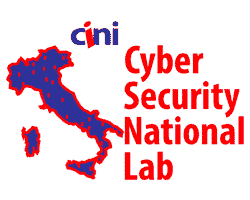Overview
A distributed ledger (also called a shared ledger, or referred to as Distributed Ledger Technology (DLT)) is a consensus of replicated, shared, and synchronized digital data geographically spread across multiple sites, countries, or institutions. For this reason, there is no central administrator or centralised data storage, as in other former technologies.
To maintain the ledger updated, correct, and consistent, a peer-to-peer network is required as well as consensus algorithms to ensure replication across nodes is undertaken. In its simplest form, a distributed ledger is a database held and updated independently by each participant (or node) in a large network. Every single node processes every transaction, coming to its own conclusions and then voting on those conclusions to make certain the majority agree with the conclusions.
Read more...
One form of distributed ledger design is the blockchain system, which can be either public or private (or even permissioned). But not all distributed ledgers have to necessarily employ a chain of blocks to successfully provide secure and valid achievement of distributed consensus. At the same time, these networks make constantly available for examination a full audit trail of information history, which can be traced back to the moment when a piece of information was created for the first time. Furthermore, unauthorised changes to the information and its history are very difficult, if not impossible, to make.
The invention of distributed ledgers represents a revolution in how information is gathered and communicated. Possible applications concern the implementation of cryptocurrencies, but also, for instance, improve systems dedicated to crowd-funding, health-care, digital rights management, e-voting, block-chain oriented public services, financial contracts, and supply-chain services.
Interest in Blockchain and DLT exploded in recent years due to their application in the implementation of cryptocurrencies. Since its application in BitCoin, the first well-known cryptocurrency on which a long economic debate is still ongoing, Blockchain and DLT have been used in many other cryptocurrencies, but they may be applied in many other sectors with important economic and social impact. Among others, systems dedicated to crowd-funding, health-care, digital rights management, e-voting, block-chain oriented public services, financial contracts, and supply-chain services, are possible examples.
Scope
The success of DLT has led to fascinating research along multiple interesting lines from pure technology to economic and social science. This workshop aims to bring together interested scholars from all relevant disciplines who study DLTs and their surrounding ecosystems. The primary goal is to foster discussion and cross-fertilisation of ideas among experts in different fields related to DLTs, and thus advance the national and international state-of-the-art.
How to Participate
- Participation in scientific sessions is reserved for professionals in the academic world and companies and is subject the payment of a registration fee. Participation will be confirmed only for a limited number of people until exhaustion of available places. Please send pre-registration form that can be downloaded here:
- Participation in the panel discussion is open to the public.
Programme
Scientific session subject to pre-registration
MORNING
Session 1 (in english)
Chair: Prof. Andrea Vitaletti - Università degli Studi di Roma "La Sapienza"
Session 2 (in english)
Chair: Prof. Maurizio Pizzonia - Università degli Studi Roma Tre
AFTERNOON
Session 3 (in italian)
Chair: --
Session open to the public (in italian)
Organization
Chairs
- Prof. Stefano Bistarelli
Direttore Nodo UniPG CINI Cyber Security National Lab - Università degli Studi Perugia - Prof. Gianna Figà Talamanca
Università degli Studi di Perugia
Programme Commitee
- Prof. Leonardo Aniello
University of Southampton - Prof. Massimo Bartoletti
Università degli Studi di Cagliari - Prof. Stefano Bistarelli
Direttore Nodo UniPG CINI Cyber Security National Lab - Università degli Studi Perugia - Prof. Gianna Figà Talamanca
Università degli Studi di Perugia - Prof. Maurizio Pizzonia
Università degli Studi Roma Tre - Prof. Andrea Vitaletti
Università degli Studi di Roma "La Sapienza"
Steering Commitee
- Prof. Leonardo Aniello
University of Southampton - Prof. Massimo Bartoletti
Università degli Studi di Cagliari - Prof. Stefano Bistarelli
Direttore Nodo UniPG CINI Cyber Security National Lab - Università degli Studi Perugia - Prof. Maurizio Pizzonia
Università degli Studi Roma Tre - Prof. Andrea Vitaletti
Università degli Studi di Roma "La Sapienza"
Organizing Commitee
- Dott. Ryuta Arisaka
Università degli Studi di Perugia - Prof. Stefano Bistarelli
Direttore Nodo UniPG CINI Cyber Security National Lab - Università degli Studi Perugia - Prof. Gianna Figà Talamanca
Università degli Studi di Perugia - Dott. Theofrastos Mantadelis
Università degli Studi di Perugia - Dott. Laura Marozzi
Università degli Studi di Perugia - Dott. Ivan Mercanti
Università degli Studi di Perugia - Dott. Claudia Migliorati
Confcommercio Perugia - Dott. Roberto Palazzetti
President of ASSINTEL Umbria - Prof. Francesco Santini
Università degli Studi di Perugia - Dott. Carlo Taticchi
Gran Sasso Science Institute - Dott. Simone Topini
Università degli Studi di Perugia






